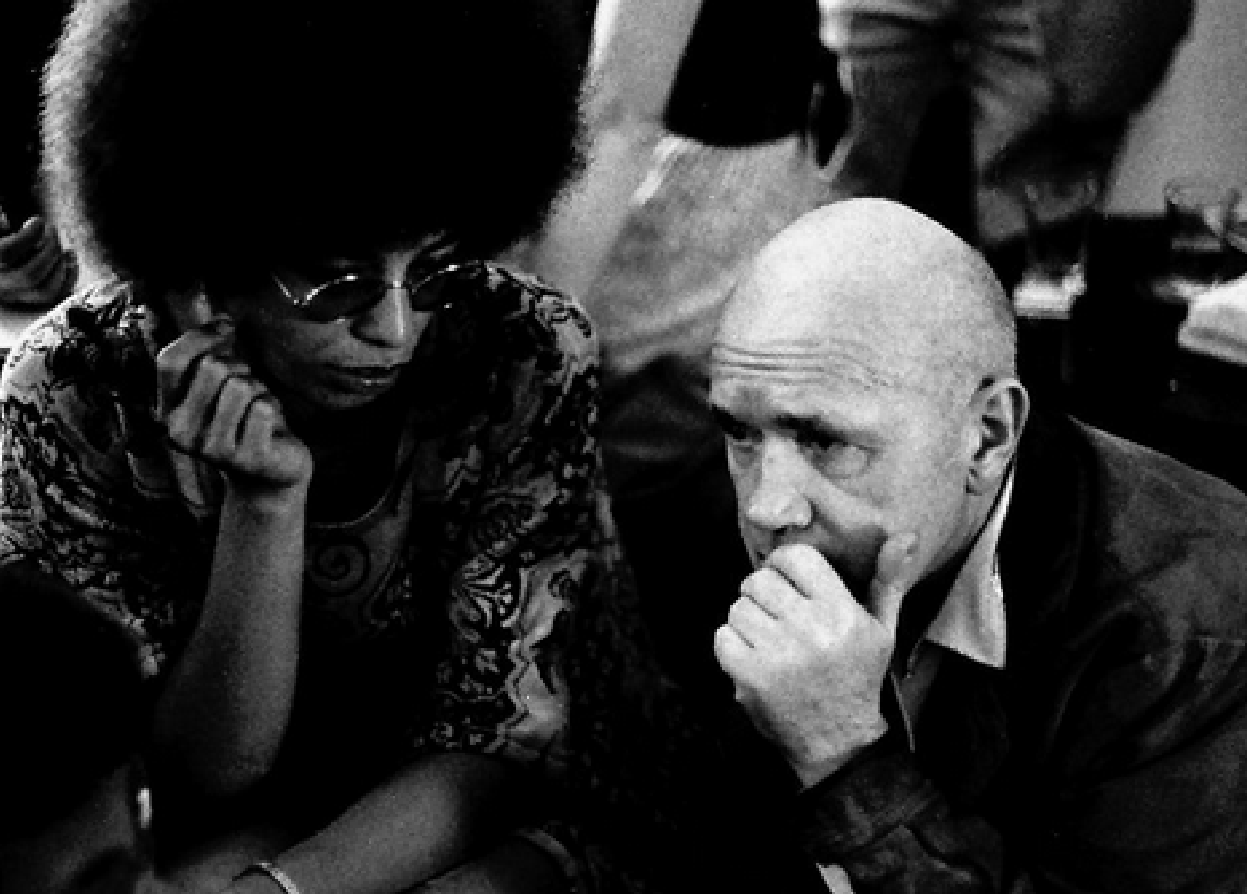By Lynn Burnett
In 1970, the Black Panther International Section – based out of Algeria, where prominent Panthers-in-exile had fled – approached the controversial French literary giant Jean Genet, who was a fierce critic of French neocolonial oppression in Algeria and elsewhere. The Panthers asked Genet if he would issue statements of support for the Panthers from France. The situation for the BPP was dire at the time: COINTELPRO was decimating the party, cofounders Huey Newton and Bobby Seale were both in jail along with hundreds of other leading Panthers, and finances were in shambles. The BPP International hoped that Genet, as one of the world’s most famous authors, could help generate support from abroad.
Instead of issuing statements from France, Genet got on a plane. Banned from the U.S. as an outspoken radical gay man with a criminal record, Genet flew to Montreal, where the BPP Deputy of Information for New York State, Zayd Malik Shakur (later arrested alongside Assata Shakur), met him and smuggled Genet into New York. In the words of scholar Robert Sandarg, “With his illegal status, he would of necessity lead a shadowy existence, emerging from Panther sanctuaries to address audiences, then disappearing again.” Although Genet often addressed multiple audiences a day, at one point he went underground for two entire weeks… time that he spent actively strategizing with the Black Panthers. Genet spent two months travelling the U.S. He focused especially on mobilizing White youth from privileged economic backgrounds, speaking everywhere from Yale to MIT to Stanford, in an effort to leverage the resources and networks these students had in the cause of the Black Panther Party… and to move them into action. During his talks Genet discussed concepts central to the BPP: the right to self-defense, escalating police brutality and surveillance as a form of American fascism, and solidarity between Black Americans and colonized people in the shared struggle against White supremacy as it played out on the global stage.
Genet urged these students to mobilize their communities to financially support the Black Panther Party Legal Defense Fund, but he also expressed that he was sick of watching White intellectuals do nothing BUT donate and talk about the issues. For Genet, White radical good conscience was impoverished. As he put it: “You must face life and no longer live in the comfortable aquariums of the California universities, like goldfish only capable of making bubbles . . . I can only relate to people by their practices and actions . . . not by their words.” In an article titled “Bobby Seale, the Black Panthers, and Us White People” published in the Black Panther newspaper, Genet wrote to White youth: “When the Black Panthers contacted me in France, I came right away to the United States to put myself at their disposal. Your youth, your intellect and physical agility, your moral imperatives are capable of making you act faster than I, and with greater efficiency. This is why I am counting on you to help the Black Panther Party.”
Eventually Immigration Services tracked Jean Genet down. He crossed back into Canada rather than submit to them. From there he flew back to France, which he soon left to spend six months working in Palestinian refugee camps. Genet continued his support for the Black Panther Party from overseas, giving large portions of his personal fortune to the BPP, anticolonial freedom struggles, and to immigrant’s rights groups in France. Angela Davis had assisted Genet with interpretation during his tour, and Genet later contributed to the Free Angela Davis Movement, writing articles that lambasted the American news media for their unwillingness to forthrightly discuss her case. Genet also threw his support to George Jackson: the introduction to Jackson’s famous book “Soledad Brother” is written by Jean Genet.
Additional Resources
Jackqueline Frost:
- Experiments in Political Inheritance: Jean Genet’s Legacy in Post-Algerian France.
- Jean Genet’s May Day Speech, 1970: “Your Real Life Depends on the Black Panther Party”.
Jean Genet: Bobby Seale, the Black Panthers, and Us White People. (Page 7.)
Robert Sandarg:Jean Genet and the Black Panther Party.
